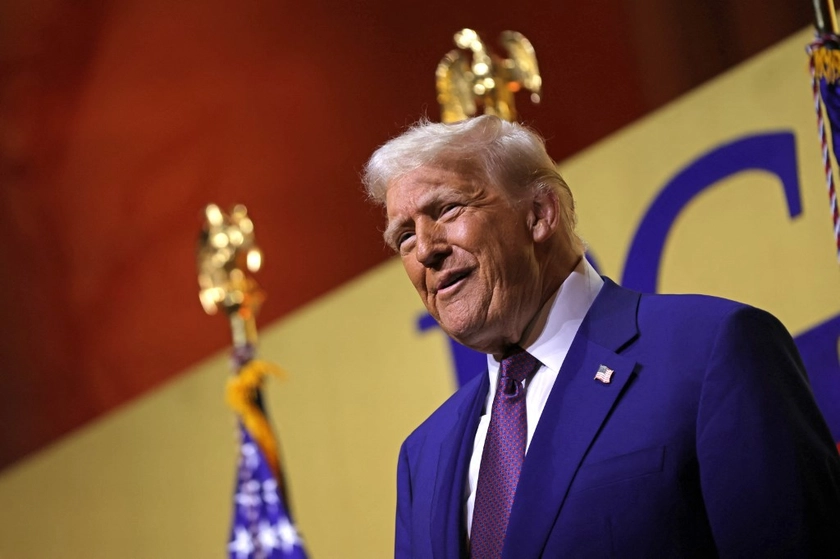Voting began across Europe Sunday on the final – and biggest – day of marathon EU elections, with balloting due in 21 countries, including France and Germany, where support for surging far-right parties is being tested.
It is a pivotal time for Europe. The continent is confronted with the war in Ukraine, global trade and industrial tensions marked by US-China rivalry, a climate emergency and a West that within months may have to adapt to a new Donald Trump presidency.
JOIN US ON TELEGRAM
Follow our coverage of the war on the @Kyivpost_official.
The vote outcome will determine the bloc's next parliament and indirectly the makeup of the powerful European Commission – thus helping to shape European Union policies over the coming five years.
The elections "are crucial because the European Parliament must start to play its rightful role", voter Kostas Karagiannis told AFP as he emerged from a polling station in Athens.
"It must play its part in the daily lives of all European citizens."
While centrist mainstream parties are projected to hold most of the incoming European Parliament's 720 seats, polls suggest they will be weakened by a stronger far right pushing the bloc towards ultraconservatism.
Many European voters, hammered by a high cost of living and fearing immigrants to be the source of social ills, are increasingly persuaded by its populist messaging.
Hungarian voter Ferenc Hamori, 54, said he wanted to see the 27-nation bloc led more by politicians like his country's right-wing leader Viktor Orban.

Lithuania Calls for $10B for Ukraine’s Defense Industry
Orban "will win the elections here, but he will still be outnumbered in Brussels," the physical education teacher told AFP in a village near Budapest.
Battleground France
France will be the EU's high-profile battleground for the competing ideologies.
With voting intentions above 30 percent, Marine Le Pen's far-right National Rally (RN) is predicted to handily beat President Emmanuel Macron's liberal Renaissance party, polling at 14-16 percent.
Le Pen is hoping to form a far-right supergroup in the European Parliament. But analysts predict disagreements with other hard-right parties – especially over military help for Ukraine, something Le Pen is leery of – will scupper that.
In Germany, Europe's biggest economy, the election could likewise deal a blow to Chancellor Olaf Scholz – whose centre-left SPD is polling behind the far-right Alternative for Germany (AfD).
Leading the polls are the centre-right Christian Democrats, credited with 30 percent of votes –but on 14 percent the AfD is either neck-and-neck or ahead of all three parties in the ruling coalition: SPD, Greens and the liberal FDP.
Le Pen, who has strived to shed the RN of its past reputation for anti-Semitism and xenophobia, has made overtures to Italy's far-right premier Giorgia Meloni with an eye to teaming up.
But Meloni, while fiercely opposed to undocumented asylum-seekers entering Europe, has cultivated a pro-EU position and given little heed publicly to Le Pen's offer.
Von der Leyen's ambition
Unlike Le Pen, Meloni aligns with the overall EU consensus on maintaining military and financial assistance to Ukraine and encourages its ambition to one day join the bloc.
Meloni is also important to European Commission chief Ursula von der Leyen's bid for a second mandate, which will be decided by EU leaders but also needs majority assent in the new European Parliament.
Von der Leyen, a conservative former German defense minister, has opened the door to her European People's Party (EPP) – projected to come top in the EU parliament but without a majority – working with Meloni's far-right lawmakers.
Mainstream leftist parties fear that could trigger a sharp rightward turn – with tougher immigration rules and a watering down of climate policies to appease angry farmers and focus on boosting industrialization.
It could also further bring the far right into the mainstream, as has happened in Italy and the Netherlands where they dominate governing coalitions.
360 million eligible voters
Far-right populism and nationalism are already forces to be reckoned with in Poland and Spain. In Hungary, premier Orban's ruling Fidesz party has been blocking further EU aid to Ukraine.
More than 360 million voters were called to cast ballots across the EU over four days, with projected overall results due late Sunday evening.
Polling data compiled by Politico suggest the centre-right EPP will win 173 seats in the legislature, with the centre-left Socialists and Democrats on 143 and the centrist Renew Europe on 75.
The main far-right grouping, the European Conservatives and Reformists, in which Meloni's Brothers of Italy party sits, was projected to win 76 seats.
The smaller Identity and Democracy grouping that includes Le Pen's RN was predicted to get 67.
You can also highlight the text and press Ctrl + Enter











